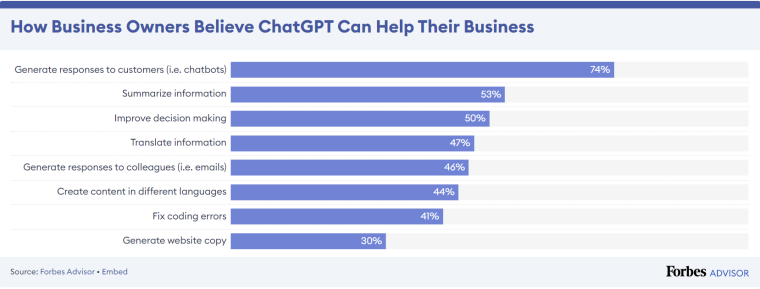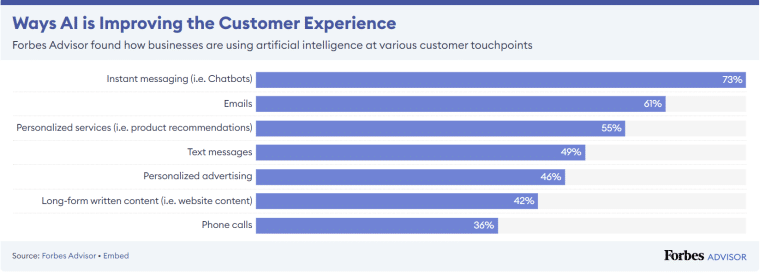
A new study suggests that artificial intelligence (AI) will disproportionately affect the jobs of women, particularly those in white-collar roles.
Approximately 80% of women in employment were in roles considered to be at risk of disruption by AI, according to research by the University of North Carolina’s Kenan-Flagler Business School. The equivalent figure for men is 60%.
Overall, the report claimed that women are 21% more exposed to AI automation than men even though men outnumber women in the workforce.
It suggested that women are more vulnerable to job losses to AI because they tend to work in supportive or administrative positions, which are more susceptible to disruption by automation than the blue-collar roles more commonly held by men.
“The reason more women than men are exposed to A.I. automation is straightforward: A higher percentage of working women are in white-collar jobs (~70%) vs. blue-collar ones (~30%) while for men the ratio is roughly 50/50,” wrote Mark McNeilly, marketing professor and author of the study.
The UNC research builds on earlier findings by Goldman Sachs, which predicted that 15 roles, mostly in legal, engineering, and management professions, are most likely to be affected by AI.
The report from Goldman Sachs had previously claimed that around two-thirds of jobs would be affected by the technology, while as much as 50% of the tasks involved in these roles could be automated.
More specifically, it estimated that generative AI may potentially replace the equivalent of 300 million full-time jobs.
AI Could Help Boost GDP and Create New Jobs
However, the use of AI could still yield significant benefits, with a potential 7% boost to global GDP as a result of increased economic activities.
“Whether the changes are good or ill for individual workers will depend on their occupation, firm, individual capabilities and ability to adapt. Some will adjust better than others. There will be winners and losers,” McNeilly wrote.
McNeilly also suggested that while increased adoption of AI might significantly alter the global labor market, its impact would vary widely across different regions, sectors, and individuals.
Some groups and individuals would be better positioned than others to adapt to the changes.
Women, noted McNeilly, were likely to be most affected by the impact of AI, but it could also hit people of color particularly hard.
Another recent study by workplace analytics firm Revelio Labs found that women held 71% of those jobs most likely to be affected by artificial intelligence.
The research indicates that women are more likely to be in administrative support roles, where automation is more likely to disrupt employment, Revelio’s economist Hakki Ozdenoren said in a post last week.
“While A.I. tools like ChatGPT are not trained to replace a specific demographic, the differential effect of A.I. comes from the uneven distribution of gender across the labor force,” Ozdenoren said.
Nevertheless, the study suggested that the effect of AI on employment is not necessarily negative, as AI can also help to reallocate labor to more productive work.
97% of Businesses Expect to Use AI to Improve Efficiency
As reported, approximately 97% of businesses expect to use AI to improve their efficiencies and cut costs.
More specifically, a large majority of business owners (74%) said they expect ChatGPT will help them in generating responses to customers through chatbots, according to a survey conducted by Forbes Advisor.
The survey revealed that many businesses see promise in the usefulness of AI, such as streamlining email communications with colleagues (46%), generating website copy (30%), fixing coding errors (41%), translating information (47%), and summarizing information (53%).
Half of the respondents also shared their belief that ChatGPT could contribute to improved decision-making (50%) and enable the creation of content in different languages (44%).

It is worth noting that AI is being used across a wide range of areas, including customer service, cybersecurity, fraud management, customer relationship management, inventory management, content production, accounting, supply chain operations, recruitment, and audience segmentation.
AI is also being used to enhance the customer experience across all touchpoints.
Approximately 73% of businesses use or plan to use AI-powered chatbots for instant messaging, 61% use AI to optimize emails, and 55% deploy AI for personalized services such as product recommendations.
Moreover, AI is being used for website copy (42%) and personalized advertising (46%).
